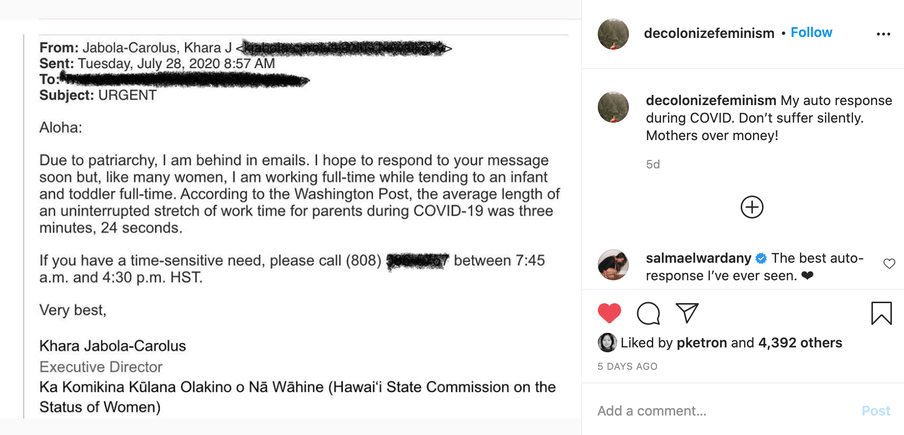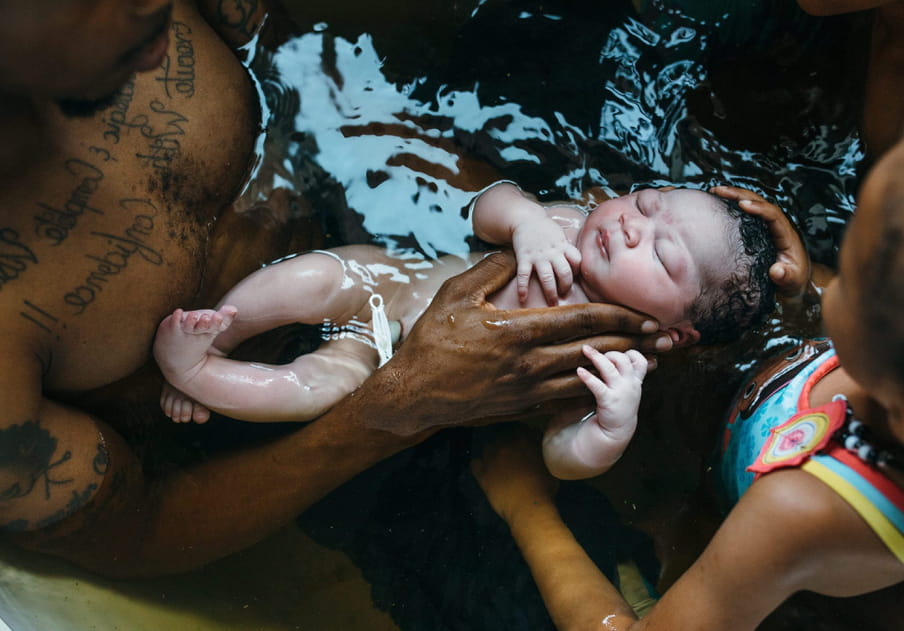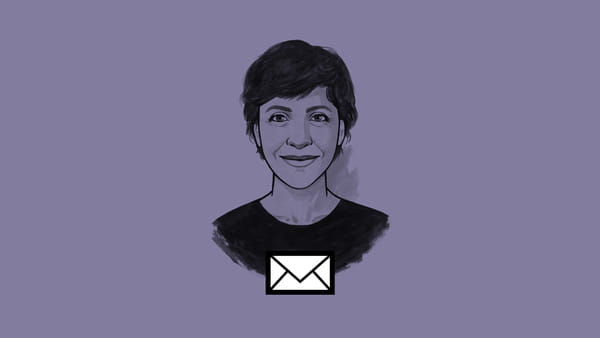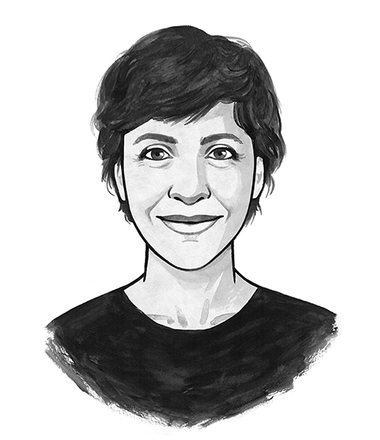Hi,
This week, I’m exhausted.
I could blame it on the summer heat, or on my son’s sleepless night because he’s teething. But that is not the kind of structural thinking that I’ve been encouraged to do here at The Correspondent. As our founder Rob Wijnberg says, we need to report on the climate, not on the weather.
If I take a moment to reflect on why I’m so tired, take a step back and look at the past couple of years, I can’t help but wonder how I’m still standing.
Since Lorenzo was born a year and a half ago, I’ve had two weeks off. I used to be a freelance journalist before starting as your First 1,000 Days correspondent, and freelance journalists like me don’t have access to maternity leave – as I wrote a few months ago. This meant that I was working an hour before my contractions started, and responding to work emails from my hospital bed after delivery.
Over the course of these 77 weeks, I recovered from birth, figured out how to breastfeed and change nappies, took on responsibility for another human being and did a bunch of other things that come with motherhood. All of this while starting a new job, and getting caught in-between homes by a pandemic, with no access to childcare. Thanks to my husband who took over childcare duties at home, I can do my job almost uninterruptedly – unlike many other parents, especially mothers, who have an average stretch of three minutes, 24 seconds to work while their kids are around.
I usually look at all the ways in which I am lucky: after all, I have a stable job now, and my husband is willing to cut back on his work to take over childcare.
But a few days ago I had an “aha” moment when Imogen Champagne, the engagement editor at The Correspondent, shared this post with me:

Khara Jabola-Carolus is the Executive Director of Hawaii State Commission on the Status of Women, and she’s behind a “feminist economic recovery plan” for the archipelago. “Due to patriarchy, I am behind in emails,” she writes.
So, let me follow her example and restart this newsletter.
This week, due to patriarchy, I’m exhausted ...
Due to patriarchy: why do you decide NOT to have children?
My colleague OluTimehin reflected on her own struggles working while being a single mother in her latest newsletter. She advised people not to become parents: “We can’t escape capitalism but we can opt out of parenthood.”
Is opting out of parenthood the best way to kick capitalism (and patriarchy) in the butt? One reader, Amelia, disagreed wholeheartedly with OluTimehin: “The idea of not having kids if you want to pursue your career, in the 21st Century, is a complete mistake, evidenced by thousands of very successful single mothers,” she wrote.
Regardless of whether you decide to have or not have children, we should all agree that children are the future of our society. This means that it should be in the benefit of society as a whole to have mothers (and fathers) who are not exhausted, and children who can receive adequate care, love and protection.
Sometimes people with children and people without children are pitted against each other. Mothers tell their childfree friends that they have no idea what tiredness is. Childfree women get back at them by saying they had a choice not to have a child.
None of this bickering appeared below the newsletter I wrote last week asking why you decide to have or not have children. What appeared was a clear sense of how patriarchy will not let you complain if you decide to have children – but will also torture you if you dare NOT to have them. There were many insightful contributions. If you’re a member of The Correspondent, this is what this platform is amazing at, and I would really suggest going there to add your own story, here below this article.
“Every year, my students will inevitably ask whether I have kids. I tell them no, I don’t want kids. They’re always surprised. Good – I want them to know it’s an option,” wrote Betsy.
“I want to live in a world where my decision not to have children is simply a valid choice, not something I’ll grow out of, or something that needs to be excused by my disability," said Micaela.
“So much of what it means to be a woman is tied to children,” wrote Jennifer. “I wish there was a way where mothers and those who aren’t mothers weren’t always epitomized as having a purpose only because of what they can produce.”
To me, the most important thing is that we are talking about this. Why do we need to judge women simply on the basis of their choices to have or not have children? That is something I cannot tolerate. So let’s all be more honest, if we can, and let’s have open conversations.
A person’s choice is not an indictment of yours – and that’s not how we should take it.
Due to patriarchy: the disappearance of midwives

Sarah Menkedick, whose writing I’ve admired for a while and whose book Ordinary Insanity: Fear and Silent Crisis of Motherhood in America is next on my reading list, has written a story for The Correspondent!
It is a very insightful piece about how the patriarchy (together with racism and profit) have pushed black midwives out of the birthing process in the United States – in favour of modern hospitals and to the detriment of the mother and the child.
If you’re a black mother in the US, you are four times more likely to die in childbirth than white mothers, and your children will be twice as likely to die in their first year of life. The solution to this huge motherhood disparity can be found outside of hospitals with the practice of midwives and home births. The current pandemic is already giving us a glimpse of how things could work differently.
You can read Sarah’s article here.
Down with the patriarchy,
Irene
P.S. It’s World Breastfeeding Week! If you missed my story on how amazing human milk is, and why we should know more about it, you can find it here.
 Do you want this newsletter straight in your inbox?
If you’re interested in reading more about early childhood, as well as reproductive rights and sexuality, you can subscribe to my weekly newsletter about the First 1,000 Days of life.
Do you want this newsletter straight in your inbox?
If you’re interested in reading more about early childhood, as well as reproductive rights and sexuality, you can subscribe to my weekly newsletter about the First 1,000 Days of life.

